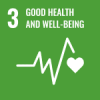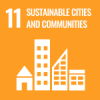Genetic Working Group, Faculty of Medicine, Public Health, and Nursing (FKKMK) UGM and the team have successfully identified four isolates from Yogyakarta and Central Java Whole Genome Sequencing (WGS) published in GISAID, three of which contain the D614G mutation.
dr. Gunadi, Sp.BA., Ph.D., as the Head of Genetics Working Group, FKKMK UGM, said that currently, the D614G mutation in the SARS-CoV-2 virus, which has an infectious potential ten times higher, has spread to almost all corners of the world. There is 77.5 percent of the total 92,090 isolates containing the D614G mutation. Meanwhile, in Indonesia, there is a report that indicates D614G mutation in 9 out of 24 isolates published in GISAID.
“This is one-third detected in Yogyakarta and Central Java,” said Gunadi (1/9).
Gunadi added that although Indonesia’s data is still far from ideal compared to world data for the benefit of data on the virus transmission in the population (epidemiology), the development of Covid-19 vaccines or therapy in the world, especially in Indonesia. Based on the fact that there is a SARS-CoV-2 virus with D614G mutation detected in Indonesia, all parties should improve their disciplines in implementing health protocols, such as washing hands, using masks, avoiding crowds, and so on.
Up to this moment, the total number of a population infected with Covid-19 worldwide is 25,590,934 cases, with a death rate of 853,415 cases. Since the announcement of the first patient for Covid-19 in March 2020 until August 31, 2020, in Indonesia, there were 174,796 cases of Covid-19 (the 23rd global highest), with 7,417 patients died.
Unfortunately, the WGS SARS-CoV-2 data from Indonesia published on GISAID is minimal, namely 24 full-genomes compared to 92,090 full-genomes worldwide (September 1, 2020). WGS data is essential for knowing the epidemiology (spread) of the virus, including the type of mutation (clade) in the community, its connection with the severity of Covid-19 patients, development of vaccines, or Covid-19 therapy in the future, especially in Indonesia.
“That way, WGS data from Indonesian isolates is a must and as a form of independence for the Indonesian national identity,” said Gunadi.



